1830s - Tumblr Posts

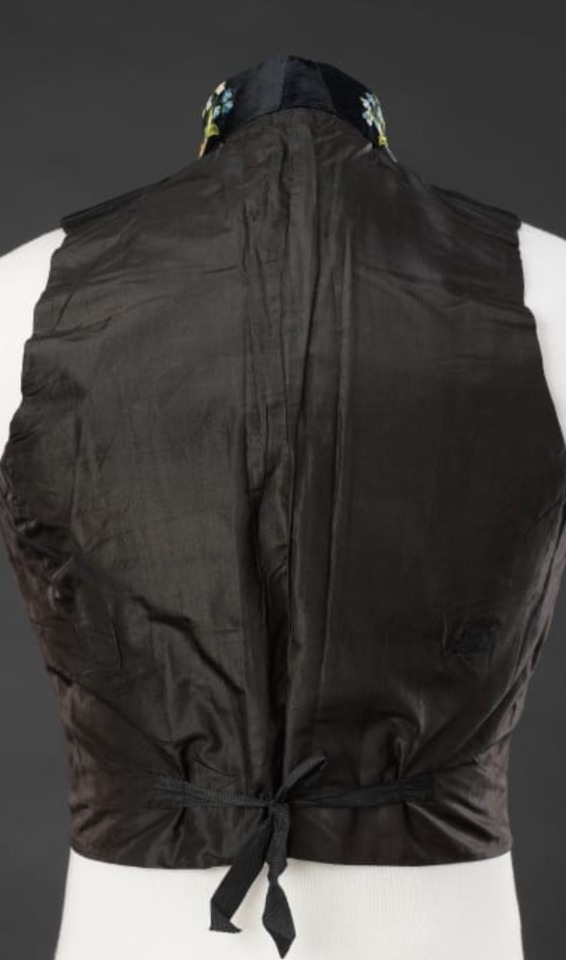

Satin silk waistcoat, embroidered with silk and chenille thread. Dated to the 1830s, the waistcoat is lined in glazed twill, and is backed in black silk with a pair of black tape ties for adjustment. (The John Bright Collection)
As to why they’re stuck in their vests, quizzing glasses swing out a lot and thump on your chest when walking on a long ribbon, it can be a bit disruptive as well as possibly scratching the glass if you have metal buttons. It’s convenient to stick it in the vest between buttons (unbuttoning and re-buttoning).

Paul Gavarni — Fashionables of 1832

EVERYONE LOOK AT THIS CAT FROM AN 1830 DOLL HOUSE
(Anyways if you wanna look at the full thing it’s very cool)

ANOTHER ONE!!

An unusual detail in a men's fashion plate in Petit Courrier des Dames, 1830. The text describes it as "Habit de Cheval ouvert sur la poitrine"—riding clothing open on the chest. I can't say that I have seen anything quite like it before.

During the 1830s Cooper designed the first steel chair in America, which was a rocking chair. Cooper produced a functional, minimalist design radically different from the Victorian heavily decorated, ostentatious style of the time. Most rocking chairs had separate rockers fixed to regular chair legs, but Cooper’s chair used the curve of its frame to ensure the rocking motion.
Cooper’s chair was made of steel or wrought iron with upholstery slung across the frame. The model was manufactured at R.W. Winfield & Co. in Britain. The firm exhibited examples of the chair at the Great Exhibition of the Works of Industry of all Nations (Crystal Palace Exhibition) in 1851 and the Great London Exposition of 1862.
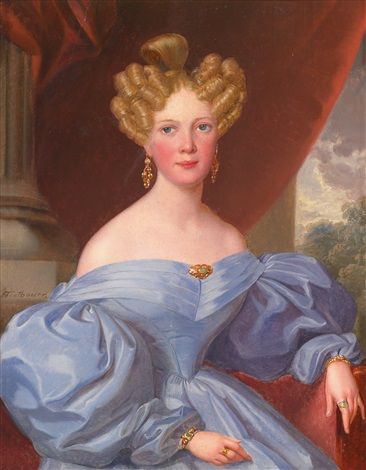
Shall we take a moment from our day to appreciate the absolute delight that was the (early) 1830, aka Romantic Era, aka the decade when western fashion peaked?
If you have heard anything about the fashion of that time, you probably know the sleeves. So let's start with them, shall we?

Behold! Big sleeve! I don't know what else to say. I'm a simple woman, who thirsts for the biggest sleeves possible. They gain even more comical proportions when you make them short, but try to keep them as wide as possible.

One of my personal favorites however are these weird sleeves which combines the short sleeves and the huge long sleeves for those of us who can't decide on anything. Very true to the spirit of this fashion: just put in everything!

A criminally underrated thing about the Romantic fashion is pelerine. it's the little cape thing that covers shoulders. Think of something like this.

But during 1830s it reached comical proportions in trying to cover the massive sleeves.

Another amazing part of this hoot of a decade was the hairstyles, which in my humble opinion peaked at the beginning of the century.

The side curls! The complex sculptures that are the hair! The flowers and jewelry added on top of that!!? Absolute madness. 10/10.
But you know what else was supremely extra? (Spoilers: everything) The hats. You thought the hair was unnecessarily big? You thought it had too much stuff thrown in?? WRONG.


What a blessed decade. The campiness of it all brings joy into my life.
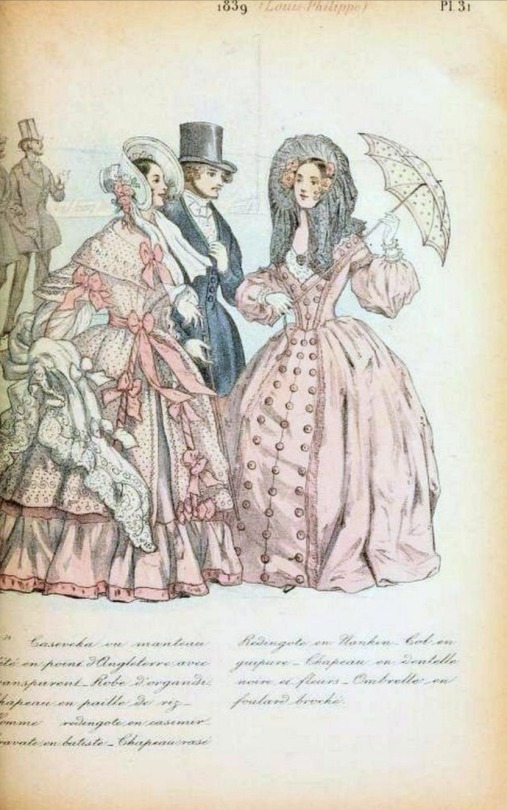
for the purposes of this poll, we’re ignoring the figure in the center since that outfit isn’t super visible ☺️
submitted by @edwardian-girl-next-door 🩷🎀
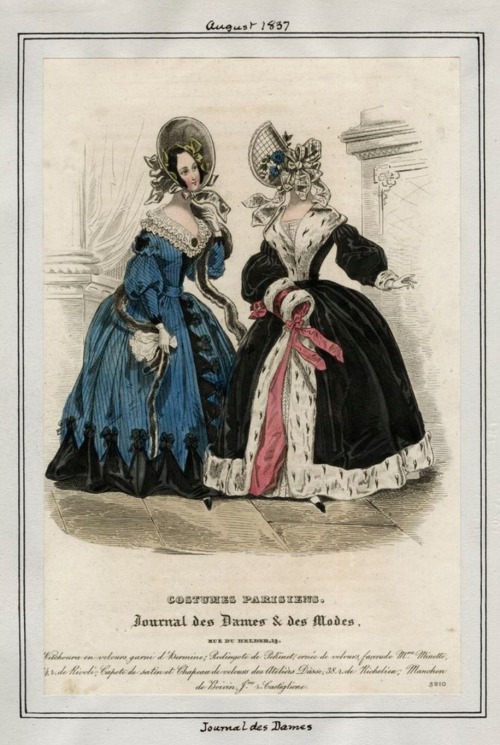
submitted by @edwardian-girl-next-door 💙🩷

18th 19th century german noble’s dress but it’s Hatsune Miku

submitted by @edwardian-girl-next-door 💙🩷

La Mode, 519, 20 août 1836, Paris. Robe en foulard gros grain. Mantelet garni d'etoffe. Chapeau de paille orné de velours. Cour de tete orne de fleurs. Digital Collections of the Los Angeles Public Library
She is wearing a pink dress with a white tippet. She also has a blue shawl with ruffles. She is holding onto a yellow capote with blue ribbons.

1839 Pimen Orlov - Woman in lilac dress
(Penza Regional Picture Gallery named after K.A. Savitskiy)

Heinrich Heine by Moritz Daniel Oppenheim (1831). Heinrich-Heine-Institut, Düsseldorf.
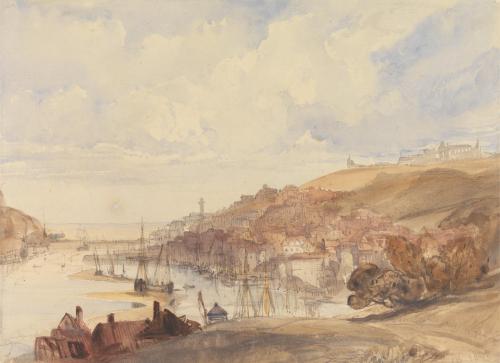
Whitby harbour (1833) by Charles Bentley. Yale Center for British Art.

Portrait of Adelaide of Saxe-Meiningen, Queen-consort of the United Kingdom (c. 1831) by William Beechey. National Portrait Gallery.
